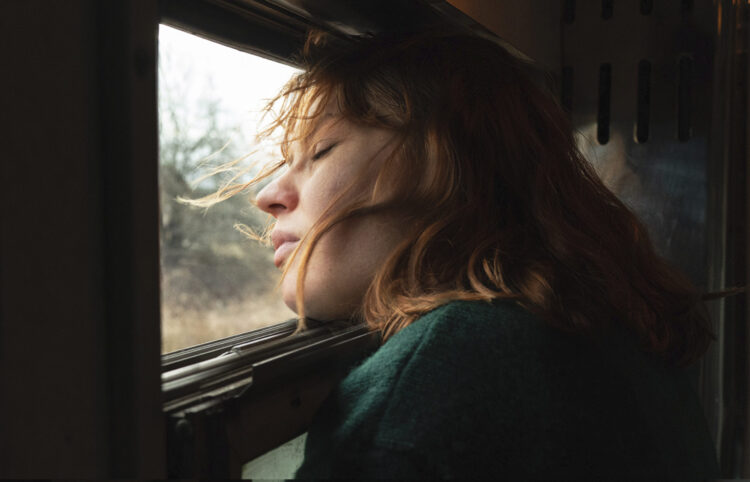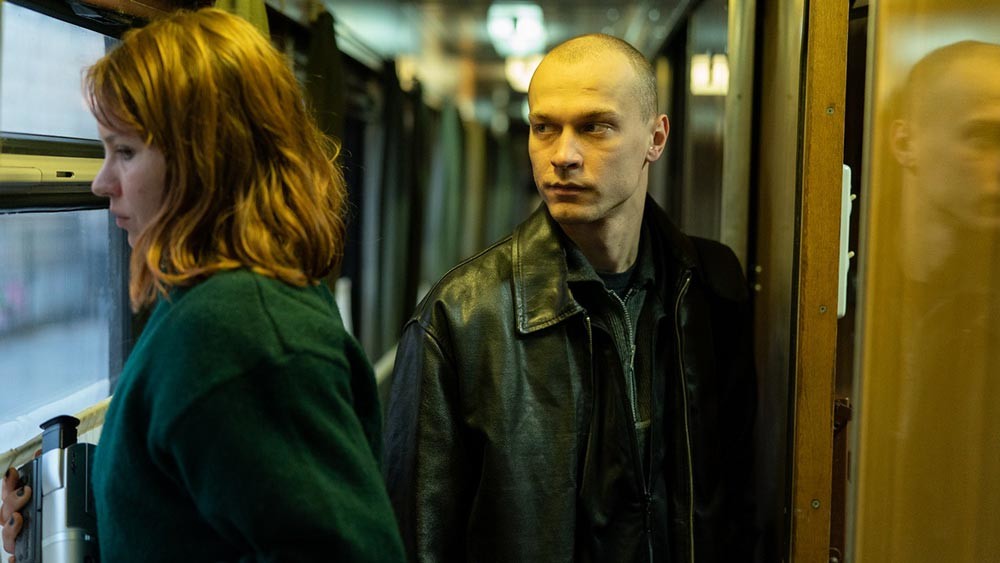Two strangers meet in a compartment of a train bound from Moscow to Murmansk in the dead of winter. Laura (Seidi Haarla) is a Finnish student. Ljoha (Yuriy Boris) is a Russian miner. They do not like each other at first sight and dread the countless hours they will have to spend together in cramped quarters. But as time passes, they learn to understand and appreciate each other.
Juho Kuosmanen’s quirky feature film, Compartment No. 6, which opens in Canadian theatres on February 6, focuses on their improbable relationship.
Laura studies archeology in Moscow and plans to explore the ancient petroglyphs, or rock paintings, of Murmansk, a city in north-western Russia. She’s sorry to learn that her professor/muse/lover, Irina, cannot join her on the long journey, but she will not let disappointment interfere with or spoil her trip.
Much to her annoyance, the person sharing her compartment, Ljoha, is offensively coarse. He drinks and smokes to excess and behaves boorishly. Yet he’s not an idiot. “Russia is a great country,” he says out of the blue. “We beat the Nazis.” He is referring to the Red Army’s victory over Germany during World War II, or the Great Patriotic War, as it is known in Russia.
At heart, Ljoha is a provocateur. “What are you doing on the train?” he asks. “Selling your cunt?”
Disgusted by his outrageous epithet, Laura asks the conductor whether she can switch to another compartment. There are no vacancies. Momentarily thinking of returning to Moscow, she phones Irina, but she seems content without Laura’s company.
Back at the train, Ljoha continues to taunt Laura, whom Haarla portrays with understated ease. Having brought her to the edge of anger, he changes course and starts engaging her seriously. Why is she interested in petroglyphs? What does she do for a living? He contributes to the conversation by telling her of his interest in becoming a businessman.
During a stopover in a small town, he invites her to accompany him to visit a friend. When they return, a jar of home-made pickles in hand, a Finnish tourist joins them in their compartment, arousing Ljoha’s jealousy. After the Finn leaves, Laura realizes that something of value in her suitcase is missing.

As the train barrels through a snowstorm, Laura confides in Ljoha, whose abrasive yet gentle personality Borisov nails down with remarkable precision. She tells him all about her life in Moscow and her special friendship with Irina. They share a meal in the restaurant car, but Ljoha suddenly gets up and leaves. Oddly enough, his erratic behavior whets Laura’s romantic impulses, as the following scene in the compartment illustrates.
Having arrived in Murmansk, Laura checks into a hotel, only to discover that tours of the rock paintings, deep in the remote bush, are unavailable during winter. Ljoha shows up unannounced at the hotel and offers to show her the petroglyphs.
Ljoha and Laura have come full circle. Adversaries at the outset, they now appear to be friends. One might ask if they have a future in common.
As the film suggests, appearances can be deceiving, while human nature is so often unpredictable.
